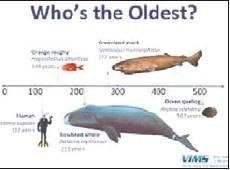To a healthy end
the editor talks with you
In Israel, they build nursery schools near senior and assisted living housing. The Israelis believe that the sight and sound of children …
This item is available in full to subscribers.
Subscribe to continue reading. Already a subscriber? Sign in
Get 50% of all subscriptions for a limited time. Subscribe today.
Please log in to continueNeed an account?
|
To a healthy end
the editor talks with you
In Israel, they build nursery schools near senior and assisted living housing. The Israelis believe that the sight and sound of children has a positive effect on the lives of the aging.
All of us want good health and sound minds into our last years.
It is why I awake at 4:50 each morning, walk our dogs in the pre-dawn darkness and work out with Rachel Maxwell.
Some mornings I would rather stay in bed but I make myself get up and go.
My reward is that the dogs love me and Rachel tells me I can do exercises that some of her students far younger cannot.
In “Borrowed Time: The Science of How and Why We Age,” Sue Armstrong explores the mechanics of growing old. She wonders why we can’t be more like the Greenland shark, It lives more than 400 years. It is physically fit and fertile to the end.
There isn’t one answer to why we age as we do. The geneticists think the answer is to be found in our genes. The immunologists credit our immune systems. The evolutionary biologists believe it’s due to evolutionary biology. Aging is a riddle.
Other theories focus on why cells stop dividing as we age. One suggests it’s “nature’s way of limiting the proliferation of potentially dangerous cells” as in limiting the spread of cancer in our bodies.
If the cause of age-related afflictions is that our immune systems are running overtime, we can try drugs that suppress it.
There’s a side effect. That’s no surprise. Isn’t there always at least one? Suppressed immunity leave us vulnerable to pathogens.
One group devotes itself to “calorie restriction.” They are convinced aging results from eating too much.
One middle-aged computer scientist favors a diet of fruit, vegetables, nuts and seeds, including an occasional treat like a bulb of raw garlic. He concedes that high hopes it may add 20 or 30 years to his life may not have entirely realistic. But even if the method did work, there is the Methuselah problem: Who calls it living when a bulb of raw garlic is a special treat?
Eric Felten writes that gerontologists believed aging resulted from toxic “free radicals” damaging our cells but no longer do.
Some call aging a disease to be cured. But if we suffer a terminal disease, unpleasant solutions may lie ahead. I know I don’t want to spend my last days hooked up to tubes and life-saving machines.
The German biologist August Weismann argued in the 1880s that “worn-out individuals are not only valueless to the species but are even harmful for they take the place of those that are sound.”
Weismann’s ideas led to Nazi genocide and euthanasia of the elderly. In 1905 Weismann was named honorary chairman of the German Society for Racial Hygiene.
It is a painful reminder that research on aging should be ethical and humane. We should be wary in trying to understand the great mysteries of decline and death.
We will discuss ideas on aging in my course on “Adventurous Aging” at the Shepherd’s Center in April. For details google Shepherds Center Lexington SC
It will be a lot of fun for you and me.
Our March Special
Get your life to a profitable start with our new “Maverick Entrepreneurs’ Million Dollar Strategies.” Inspire yourself or a friend with a personally-autographed copy for only $20. Call 359-7633.
Other items that may interest you










Comments
No comments on this item Please log in to comment by clicking here